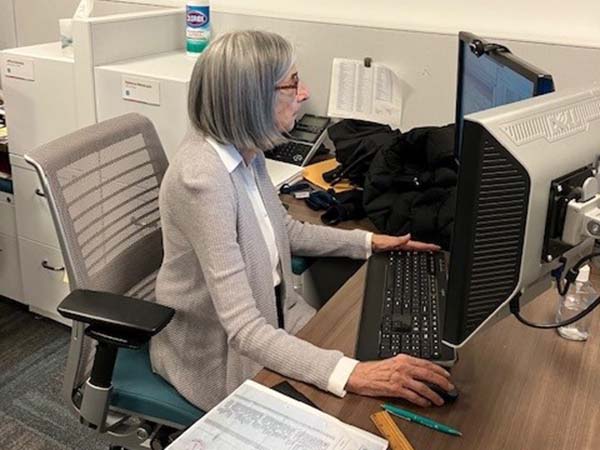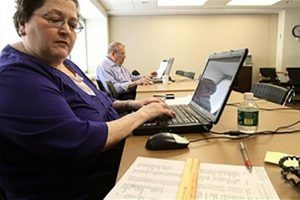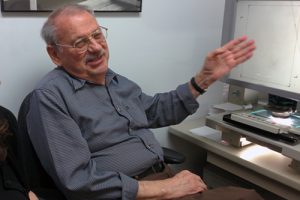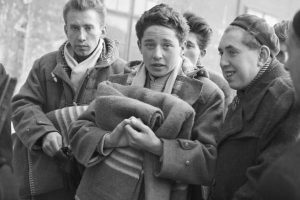
Volunteer Profile: Susan Lieberman
Sharing a lifelong passion for genealogy with others
By Jeff Edelstein, Digital Initiatives Manager
Having joined the nascent Names Indexing Project in January 2010, Susan Viuker Lieberman is the JDC Archives’ longest serving volunteer. A friend who knew of her interest in genealogy and other volunteer work had heard from then director Linda Levi that she was looking for volunteers as the project got underway. Over the past 14 years, Susan has created more than 16,500 index records, starting with the World War I-era remittance lists that are the oldest documents in the Names Index.
After retiring from a 37-year career teaching adult ESL classes for the New York City Board of Education, Susan sought out opportunities to put her knowledge and expertise in Jewish genealogy to good use. Prior to her arrival at the JDC Archives, she volunteered at YIVO and the Center for Jewish History’s Genealogy Institute, where, among other projects, she worked on recording information on HIAS immigration forms. She also volunteered at the Museum of Jewish Heritage, taking oral histories from Russian émigrés. At Congregation B’nai Jeshurun, where she is an active member, Susan has donated her genealogy skills to two auctions, researching family histories for the winning bidders; during the pandemic, she sponsored a series of genealogy classes via Zoom by Rabbi Scott Kalmikoff.
Susan’s interest in genealogy began early—as a young adult, she wrote up her own family history for her father. Her father’s family roots, which Susan has traced back to the late 1700s/early 1800s, were in Vilnius. Through her research, Susan found that Vucker, their surname as her grandfather spelled it, was incorrect and was actually Viuker. On her maternal side, the family was originally from East Prussia, but had emigrated to the United States by the mid-nineteenth century. Family lore says that an ancestor served in the Civil War, but Susan has not yet found solid evidence of this. Susan’s maternal grandfather was a classmate and friend of Felix Frankfurter, with whom he was on the debate team. He worked for Macy’s Department Store, where he was the equivalent of CFO. From this position of influence, he was able to help a number of relatives leave Germany in the late 1930s. He later wrote about his family history, including what he knew about who was still in Germany.
Another volunteer opportunity that Susan sought out proved particularly rewarding. She attended a talk by Rabbi Seth Farber, founder of ITIM, an organization whose mission includes providing assistance to Jews who wish to marry in Israel but need to prove their Jewishness. Susan knew that she could use her genealogical research skills to assist in these inquiries. One case for which she found such proof received prominent media coverage, including a feature magazine article in The Jerusalem Post (“The Amazing Case of Louis Shapiro,” April 26, 2011). Similarly and more recently, Susan found the documentation necessary to help a cousin in Argentina obtain Polish citizenship; her successful effort has now prompted him to provide similar services for other Argentine Jews who wish to establish EU citizenship.
Of the projects she has worked on at the JDC Archives, Susan notes that she has had a particular interest in lists and index cards related to Czechoslovakia, as that is where her late husband’s family was from. The Names Indexing team’s current work on lists of those who fled Poland via Czechoslovakia in the Bricha in 1946 is one example. She also recalled the indexing of the refugee registration cards from the time of the Hungarian Uprising (1956-1957) as a particularly worthwhile contribution.
Telling people she knows about her work with the JDC Archives has stimulated them to look at the JDC Archives website and search for information about their families. Summing up her experience, Susan notes, “JDC is very kind and embraces volunteers. You feel that the Names Index records will remain, that someone’s grand- or great-grandchildren will be able to find their families years from now.”


